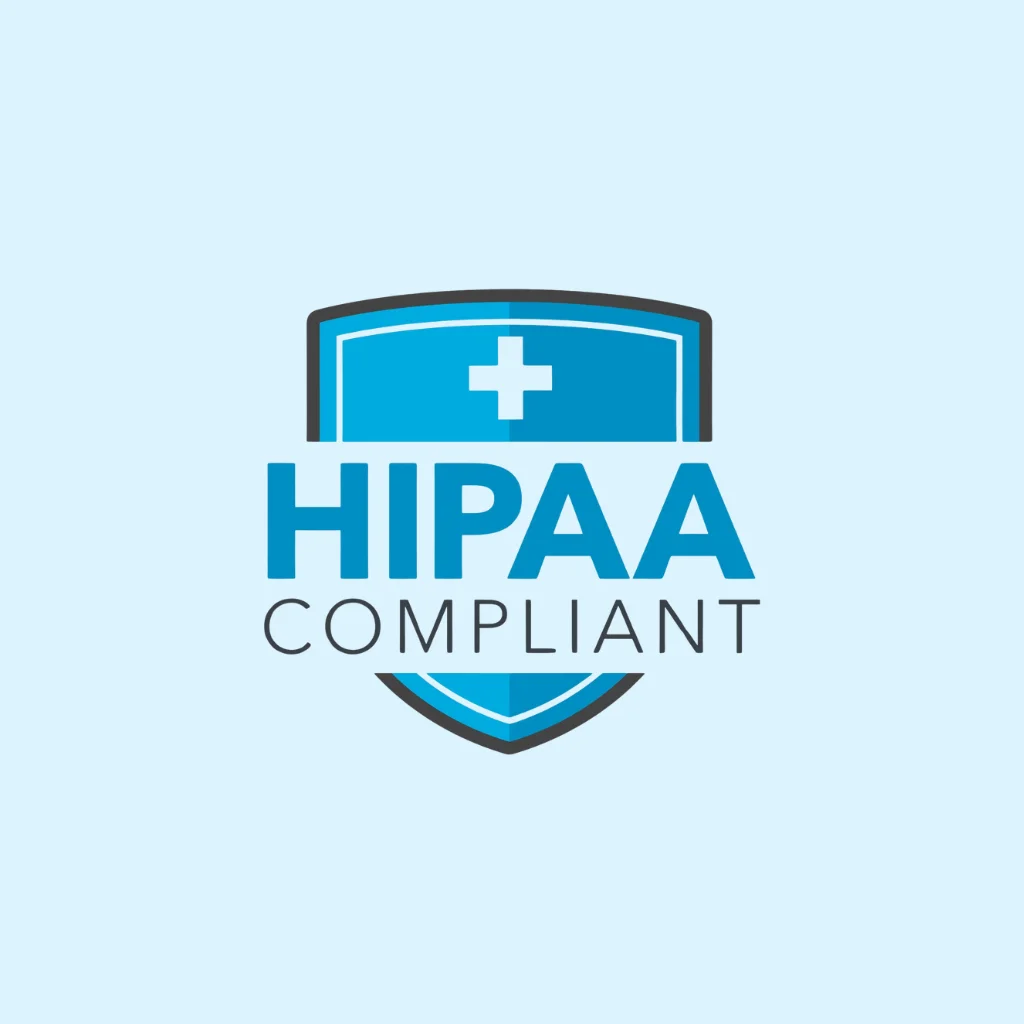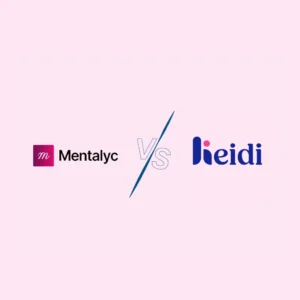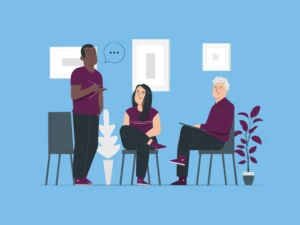Manually handling payment transactions as a therapist can be both stressful and time-consuming. As the mental healthcare industry evolves, technology has become essential for managing payments efficiently. Due to this, several mental health practitioners now automate tasks such as billing, invoicing and payment processing. However, using apps, systems, or software for healthcare payments can be tricky. It’s crucial to ensure transactions are secure and do not risk a breach of client information. In this article, we explore the best HIPAA-compliant payment processing methods. We’ve also highlighted key features and factors to consider when making the right choice for your practice.
Top Features To Look For In HIPAA-Compliant Payment Processing Solutions
Your payment processing platform might not transmit client health records. However, the platform will handle personally identifiable information like names and contact details. As a therapist, it is your responsibility to ensure these details are kept safe. Most especially, if you are using EHR systems with client portals and integrated payment processing. Some of the top features of HIPAA Compliant Payment Processing Methods include:
- Tokenization
Software systems that employ tokenization replace sensitive payment details with unique alphanumeric codes. Simultaneously, the actual client payment data is stored in a system other than the physical payment system. If hackers successfully breach your payment system, they won’t have access to real data. All they would see are alphanumeric codes that aren’t beneficial to them.
- Data Encryption
HIPAA Compliant payment processors uses end-to-end data encryption for all payment transactions. This data encryption is a process of transforming raw data into coded messages. These coded messages are meaningless in plain sight. However, they can be decoded by the online payment processor. Even though tokenization is stronger than encryption, it is best to use a payment method that employs both of them. This will be a strong defense for all client data on your system.
- Multi-Factor Authentication (MFA)
The best HIPAA Compliant payment processors ensure to add extra layers of security to protect its users. This can be in the form of passwords, one-time codes or multiple methods involved. This feature is crucial for healthcare providers who require secure access to their payment portals.
Security Measures in HIPAA Compliant Payment Processing Systems
- HIPAA Regulations
As a mental health practitioner, you need to ensure your payment processing platform adheres to HIPAA’s privacy, security, and breach notification rules. HIPAA has its set of rules. The privacy rule ensures that all EHRs and payment data are protected on the system. It also restricts the permission of the platform to share sensitive information. Similar to the privacy rule is the security rule. This rule ensures that technical controls like encryption and access control are in place.
- PCI Compliance
PCI compliance is equally as important as HIPAA Compliance. It is a standard that regulates the actions of organizations involved in payment processing. The Payment Card Industry Data Security Standard (PCI DSS) ensures that payment systems implement measures like encryption and secure card processing. It ensures security of payment gateways with advanced fraud detection features. This reduces the risk of breaches and ultimately saves your organization from legal consequences.
- Access Controls
When choosing a payment processing method, ensure to look out for its access control mechanisms. Access controls ensure that data is only accessible to authorized persons. It is crucial for transparency and accountability. This systems employ the rule of “least privilege.” In simple terms, the rule of least privilege ensures persons have the minimum data required to do their job.
HIPAA-Compliant Payment Processing Methods in 2025
1. Rectangle Health
Rectangle Health is a HIPAA-compliant payment processing solution for the mental healthcare industry. It seamlessly integrates with EHRs, making it easier for practices to manage payments. With its robust support for credit cards, debit cards, and contactless payments, Rectangle Health enhances flexibility. It also has automated payment plans, which make it easier for clients to pay in installments.
Pros of Rectangle Health
- Automated payment plan
- Reduces administrative workload.
- Protects client data from data breaches.
Cons of Rectangle Health
- High initial costs for smaller practices.
- Restricted to the healthcare industry.
2. Ivy Pay
IvyPay is a payment processing system tailored to meet the needs of therapists. It is great for solo practitioners. The system supports one-time and recurring payment plans. This makes it easier for clients to use it for regular therapy sessions. Ivy Pay is a HIPAA-compliant software that prioritizes security and confidentiality. Some of its most used features include client onboarding tools, digital receipts, and real-time tracking.
Pros of Ivy Pay
- Tailored to therapists and mental health practitioners.
- It provides convenient transactions.
- Easy to use.
- Fast and prompt payments.
Cons of Ivy Pay
- Limited payment method options.
- Lacks comprehensive billing features.
- It does not have a desktop version.
- It provides limited customer support.
3. Authorize.Net
Authorize.net is a United States-based HIPAA-Compliant payment processing method that assists with your practice growth. It supports several payment methods like credit cards, e-checks, and digital wallets. Authorize.net integrates seamlessly with mobile apps, websites, and POS systems. This makes it a suitable solution for different types of industries and business types.
Pros of Authorize.Net
- Easily accepts all types of payment.
- Strong compliance with security standards.
- Excellent customer support.
Cons of Authorize.Net
- Limited currency support.
- Charges setup fees and monthly gateway fees.
- Time-consuming setup process.
4. Chase
Chase is a cost-effective HIPAA-Compliant payment processing method that emphasizes secure transactions. It integrates seamlessly with several invoicing systems and makes transactions faster and easier. Chase employs security mechanisms like fraud detection, encryption, and PCI compliance. This ensures that your client data is safe from breaches.
Pros of Chase
- Supports multiple payment options.
- No monthly service fees.
- Easy to use.
Cons of Chase
- Limited international transactions.
- Higher transaction fees for non-chase accounts.
- Complex setup for smaller practices.
5. Square
Square is an all-inclusive payment processing method. It supports several payment options like credit cards, ACH bank transfers, debit cards, and contactless payments. Simplicity is a core theme of the square platform. After downloading, it is easy to set up and use for your transactions.
Pros of Square
- Intuitive user interface.
- Flexible payment options.
- Built-in analytics and reporting tools.
Cons of Square
- Pricey for high-volume transactions.
- Limited customer service support.
- Not ideal for medium and large practices having several clients.
6. Stax
Stax is a robust payment-processing method for practices that need cost-effective and scalable payment-processing tools. It has several features that enhance in-person and online transactions. Some of these include support for virtual terminals, invoicing, mobile payments, and recurring billing. Stax uses a transparent monthly subscription with no hidden charges. This reduces the transaction costs large practices have to pay for the software.
Pros of Stax
- Cost-effective for large practices.
- Excellent reporting and analytics tools.
- Flexible payment options.
Cons of Stax
- Limited to practices in the U.S.
- Complex setup for small practices.
- Pricey monthly fees for practices with a smaller caseload.
7. ACH Payments
ACH payments is a renowned HIPAA-Compliant payment processing method for direct deposits and B2B transactions. It is also commonly used for bill payments and recurring transactions. One highlight of ACH payments is its bank-to-bank transactions. This eliminates the need for physical checks and card networks. It makes transaction processes for mental health practitioners smoother.
Pros of ACH Payments
- Supports recurring payments.
- Convenient for B2B transactions.
- Uses strong encryption protocols.
Cons of ACH Payments
- Slow processing time.
- Restricted to practices in the U.S.
- Not ideal for real time transactions.
8. Jane
Jane is an all-in-one practice management software (PMS) for healthcare providers. It manages billing and invoicing with its integrated payment processing method. Its client portal enables seamless online and in-person payment. Jane has customizable payment policies for mental health practitioners. With this HIPAA-Compliant payment processing method, practices don’t need to get third-party payment systems.
Pros of Jane
- Supports automation of recurring payments.
- Intuitive user interface.
- Flexible payment options.
Cons of Jane
- Restricted to Jane users.
- Pricey for practices with larger caseload.
- Limited customization for payment reports.
9. Elavon
Elavon is a global payment processing system with strong adherence to HIPAA standards. It combines advanced processing tools and real-time reporting tools. It keeps its users informed about their financial status over time. Additionally, it has real-time financial tracking that ensures no hidden transactions without users knowledge.
Pros of Elavon
- Excellent customer service support.
- International reach to over 30 countries.
- Compliance with security standards.
Cons of Elavon
- High transaction fees.
- Complex pricing structure.
- Requires technical expertise to set up.
10. Vagaro
Vagaro is a user-friendly payment processing software for service-based industries. It enhances secure transactions by complying with HIPAA and PCI-DSS standards. Vagaro integrates seamlessly with third-party websites and applications. This makes it easier for your clients to make payments.
Pros of Vagaro
- It is HIPAA-Compliant.
- Has a functional mobile app.
- Extensive customer support.
Cons of Vagaro
- Steep learning curve.
- Limited customization options.
- Pricey for small practices.
Benefits of Using HIPAA-Compliant Payment Processing Methods in 2025
HIPAA-Compliant payment processing solution is largely beneficial in healthcare settings. It is used by healthcare practitioners who value client privacy. Most healthcare clinics and mental health practices seek more efficient ways to manage client payments. As a result, using HIPAA-Compliant payment processors helps to streamline tasks such as billing and invoicing.
With the rise of telehealth services, therapists in private practices can offer secure remote consultations. Therapists can also protect the confidentiality of their clients information while integrating their EHR software and billing systems.
Here are some benefits of using HIIPAA-Compliant payment processing methods:
- Security For Your Client Data
HIPAA-compliant payment methods employ encryption and secure data storage. This ensures that your client’s sensitive information is protected. These systems also ensure that the Electronic protected health information (ePHI) isn’t carelessly exposed to unauthorized persons who could tamper with the data.
- Increases Client Trust
Using HIPAA-Compliant payment processing methods increases your clients’ trust in your practice. It lets clients know that you care about their privacy and the confidentiality of their data.
- Reduced Risk of Data Breaches
Using HIPAA-compliant payment processing methods ensures that only the right personnel can view the data. In cases where incidents occur, payment platforms with HIPAA compliance have established protocols to handle the situation. These protocols ensure the incident is mitigated almost immediately after it occurs.
- Increases Your Operational Efficiency
HIPAA-compliant payment processing systems reduce human errors in your private practice. This leads to greater efficiency by saving you the time you will have used to correct errors.
- It Gives You a Competitive Advantage
Mental healthcare providers and clients prefer to relate to practices that prioritize security. As a therapist, this will lead to attracting more clients without much effort.
Conclusion
Billing and payment processing is a critical part of practice management. It impacts the financial health of your practice as a therapist. Wrong handling of payments can lead to breaches that could cause reputational damage to your practice. HIPAA-compliant payment processing systems employ the best security measures that protect your client’s data. Choosing the best HIPAA-compliant payment processing method for your practice ensures compliance to regulatory standards. It also enhances your efficiency and creates a positive client experience.
Frequently Asked Questions
Why Do Mental Healthcare Providers Need HIPAA-Compliant Payment Processing Methods?
Mental healthcare providers deal with sensitive client data which are protected under HIPAA regulations. This necessitates therapists to ensure that the payment processing methods and all integrated third-party systems are HIPAA-compliant.
What Type of Transactions Require HIPAA-Compliant Payment Processing?
All transactions that deal with Protected health information (PHI) require HIPAA-compliant payment processing. These transactions include billing for mental health services and online client payments. Any payment that involves client information, diagnoses, and treatment details must be done with HIPAA-compliant systems.
How Does Business Associate Agreement (BAA) Relate to HIPAA-Compliant Payment Processing?
BAA is a legal document between a healthcare provider and a payment processor. This ensures that the payment processor adheres to HIPAA standards when handling the PHI in their custody.
What Happens If I Use a Non-HIPAA Compliant System?
Using a system that is not HIPAA Compliant puts you at risk of data breaches and legal penalties. It would also lead to unauthorized access to client data and could ultimately affect your practice reputation.
Is PayPal and Stripe HIPAA-Compliant By Default?
PayPal and Stripe platforms are not HIPAA-compliant by default. They are unable to sign a BAA with mental health providers which makes them non HIPAA-compliant.
How Can I Ensure a Payment Processor Is HIPAA-Compliant?
To confirm the HIPAA-Compliance of a system, sign a BAA at the start of the contract. Confirm that the payment processing method uses encryption, access controls, and other security measures. It is also vital to check for the organization’s commitment to regular compliance audits.
Why other mental health professionals love Mentalyc

“For those who have hesitations … It is a lifesaver. It will change your life and you have more time to be present with your patients.”
Licensed Clinical Social Worker

“If I were recommending this software to a colleague, I would tell them that it is the best thing that they could do for their practice.”
Licensed Professional Counselor

“Do yourself a favor, make your life easier. Use the tools that are readily available … I found Mentalyc to be one of the best tools that I’ve ever used.”
Licensed Marriage and Family Therapist

“It immediately changed my quality of life, personally and professionally. I went from 3–4 hours a week of notes to 1 hour at most … that alone is invaluable personally and professionally.”
Owner/Independently Licensed Marriage & Family Therapist (IMFT)






